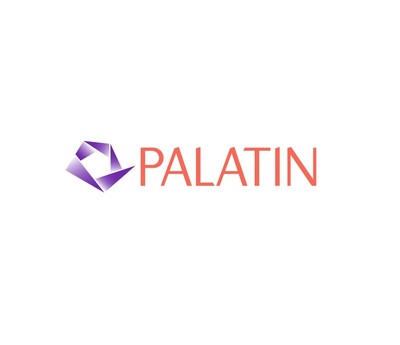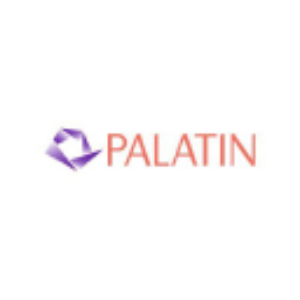Palatin Hosting Key Opinion Leader Webinar on Dry Eye Disease
Palatin Technologies (PTN) announced a webinar scheduled for March 7, 2022, at 10:30 am ET, focusing on the unmet medical needs in dry eye disease (DED). KOL Eric D. Donnenfeld will present the current treatment landscape, while CMO Michael Raizman will discuss the Phase 3 trial for PL9643, a melanocortin agonist aimed at treating DED. The MELODY-1 study plans to enroll 400 patients at multiple U.S. sites, with top-line results expected in the second half of 2022. The webinar will include a Q&A session with experts.
- The upcoming webinar may increase awareness and interest in Palatin's product pipeline.
- The Phase 3 trial for PL9643 could provide significant data on treating DED, addressing a large market need.
- There is uncertainty regarding the timeline for clinical trial results, which could affect investor confidence.
- The treatment landscape for DED is competitive, posing challenges for market entry.
Insights
Analyzing...
CRANBURY, N.J., March 3, 2022 /PRNewswire/ -- Palatin Technologies, Inc. (NYSE American: PTN), a biopharmaceutical company developing first-in-class medicines based on molecules that modulate the activity of the melanocortin and natriuretic peptide receptor systems, today announced that it will host a key opinion leader (KOL) webinar on the unmet medical need in treating patients with dry eye disease (DED) on Monday, March 7, 2022 at 10:30 am ET.
The webinar will feature a presentation from KOL Eric D. Donnenfeld, M.D., from OCLI Vision, who will discuss the current treatment landscape and unmet medical need in treating patients with DED.
Palatin Technologies' Chief Medical Officer Michael Raizman, M.D. will also discuss their Phase 3 trial for PL9643 in patients with dry eye disease. MELODY-1 clinical study is a multi-center, randomized, double–masked and vehicle–controlled study evaluating the safety and efficacy of the melanocortin agonist, PL9643 ophthalmic solution, compared to vehicle in subjects with DED. The study is designed to enroll up to 400 patients at multiple U.S. sites, and top-line results are currently expected second half calendar 2022.
The presentation will be followed by a question-and-answer session with Dr. Donnenfeld, Dr. Raizman and Palatin senior management. To register for the webinar and participate in the webcast, please refer to Palatin's website at www.palatin.com or click here.
Eric D. Donnenfeld, M.D. is an internationally recognized expert and pioneer in refractive, cornea and cataract surgery and one of the leading refractive and cataract surgeons in the United States. Dr. Donnenfeld graduated magna cum laude from Dartmouth College in 1977 and first in his class at Dartmouth Medical School in 1980. He was Chief Resident at Manhattan Eye, Ear and Throat Hospital and completed a Cornea and Refractive Fellowship at Wills Eye Hospital. Dr. Donnenfeld is on the Board of Overseers of Dartmouth Medical School and a Clinical Professor of Ophthalmology at New York University Medical Center.
Dr. Donnenfeld was the 2013-2014 President of the American Society of Cataract and Refractive Surgery. Dr. Donnenfeld is the Chief Medical Editor of EyeWorld, the official publication of the American Society of Cataract and Refractive Surgery. He is on the Executive Boards of ASCRS and ACOS and is a member of the Refractive Committee of ASCRS and Cornea section of Ocular Surgery News. Dr. Donnenfeld is a National Medical Director of TLC Laser Eye Centers and Surgical Director of the Lions Eye Bank for Long Island. He is a past president of the Ocular Microbiology and Immunology Group. Locally, Dr. Donnenfeld has also served as a board member of the Nassau Academy of Medicine, the American College of Surgeons Long Island Chapter and the Nassau Surgical Society and is a past president of the Nassau Surgical Society, where he is the youngest person to ever receive their Lifetime Achievement Award.
Michael B. Raizman, M.D. is a cornea and cataract specialist at Ophthalmic Consultants of Boston and the New England Eye Center at Tufts Medical Center. He is Chief Medical Officer at Palatin Technologies.
Dr. Raizman received his medical training at the University of Michigan and Harvard Medical School. He completed two fellowships at the Massachusetts Eye & Ear Infirmary, followed by three years of post-doctoral research at Harvard Medical School, funded by grants from the National Institutes of Health. Dr. Raizman served on the full-time faculty at Harvard Medical School from 1988-1991. Dr. Raizman is an Associate Professor of Ophthalmology at Tufts University School of Medicine, where he has directed the Corneal Fellowship Program and the Cornea and Cataract Service since 1992. In that capacity, he has trained over 50 Cornea Fellows. He is on the medical staff of the Massachusetts General Hospital, Massachusetts Eye and Ear, and Tufts Medical Center.
About Dry Eye Disease (DED)
Dry eye disease is a common inflammatory disease that, left untreated, can become extremely painful and lead to permanent damage to the cornea and vision. Dry eye disease affects the cornea and conjunctiva of the eye resulting in irritation, redness, pain, and blurred vision. It is estimated to affect over 20 million people in the United States. The disease is characterized by insufficient moisture and lubrication in the anterior surface of the eye, leading to dryness, inflammation, pain, discomfort, irritation, diminished quality of life, and in severe cases, permanent vision impairment. Existing therapy for dry eye disease is generally regarded as inadequate by many physicians and patients, and often requires weeks or months to demonstrate activity.
About Melanocortin Receptor Agonists and Inflammation
The melanocortin receptor ("MCr") system has effects on inflammation, immune system responses, metabolism, food intake, and sexual function. There are five melanocortin receptors, MC1r through MC5r. Modulation of these receptors, through use of receptor-specific agonists, which activate receptor function, or receptor-specific antagonists, which block receptor function, can have medically significant pharmacological effects.
Many tissues and immune cells located in the eye (and other places, for example, the gut and kidney) express melanocortin receptors, empowering our opportunity to directly activate natural pathways to resolve disease inflammation.
About Palatin
Palatin is a biopharmaceutical company developing first-in-class medicines based on molecules that modulate the activity of the melanocortin and natriuretic peptide receptor systems, with targeted, receptor-specific product candidates for the treatment of diseases with significant unmet medical need and commercial potential. Palatin's strategy is to develop products and then form marketing collaborations with industry leaders to maximize their commercial potential. For additional information regarding Palatin, please visit Palatin's website at www.Palatin.com.
Forward-looking Statements
Statements in this press release that are not historical facts, including statements about future expectations of Palatin Technologies, Inc., such as statements about market potential of Vyleesi and other Palatin products in development, clinical trial results, potential actions by regulatory agencies including the FDA, regulatory plans, development programs, proposed indications for product candidates, market potential for product candidates, and potential adverse impacts due to the global COVID-19 pandemic such as delays in regulatory review, manufacturing and supply chain interruptions, adverse effects on healthcare systems and disruption of the global economy, are "forward-looking statements" within the meaning of Section 27A of the Securities Act of 1933, Section 21E of the Securities Exchange Act of 1934 and as that term is defined in the Private Securities Litigation Reform Act of 1995. Palatin intends that such forward-looking statements be subject to the safe harbors created thereby. Such forward-looking statements involve known and unknown risks, uncertainties and other factors that could cause Palatin's actual results to be materially different from its historical results or from any results expressed or implied by such forward-looking statements. Palatin's actual results may differ materially from those discussed in the forward-looking statements for reasons including, but not limited to, Palatin's ability to establish and maintain the capability for manufacturing, marketing and distribution of Vyleesi, sales of Vyleesi in the United States and elsewhere in the world, results of clinical trials, regulatory actions by the FDA and other regulatory and the need for regulatory approvals, Palatin's ability to fund development of its technology and establish and successfully complete clinical trials, the length of time and cost required to complete clinical trials and submit applications for regulatory approvals, products developed by competing pharmaceutical, biopharmaceutical and biotechnology companies, commercial acceptance of Palatin's products, and other factors discussed in Palatin's periodic filings with the Securities and Exchange Commission. Palatin is not responsible for updating for events that occur after the date of this press release.
![]() View original content to download multimedia:https://www.prnewswire.com/news-releases/palatin-hosting-key-opinion-leader-webinar-on-dry-eye-disease-301494668.html
View original content to download multimedia:https://www.prnewswire.com/news-releases/palatin-hosting-key-opinion-leader-webinar-on-dry-eye-disease-301494668.html
SOURCE Palatin Technologies, Inc.








